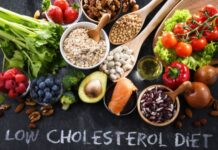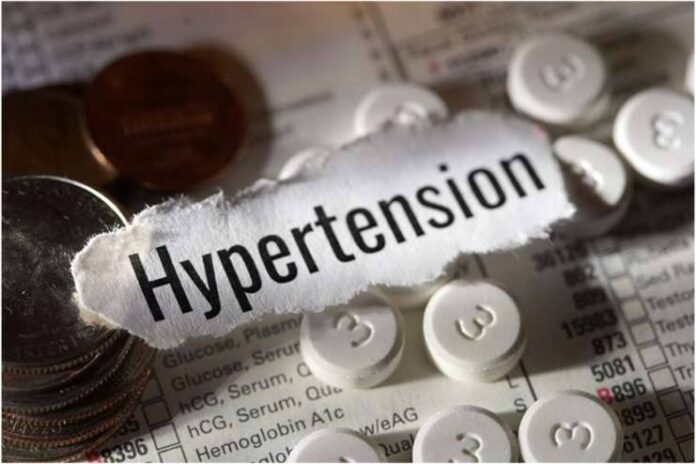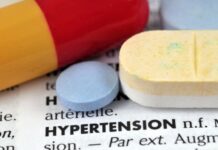Affiliate Disclaimer
Some links in this article are affiliate links. We may earn a small commission if you make a purchase through these links, at no extra cost to you. We only recommend products we find useful to our readersDietary practices are essential in managing hypertension. A balanced diet can significantly influence blood pressure levels favorably or unfavorably. It’s important to understand the relationship between dietary choices and hypertension.
This article highlights the critical role of foods in escalating high blood pressure and explains why it’s necessary to include nutritional practices to help manage hypertension.
1. Processed Foods High in Sodium
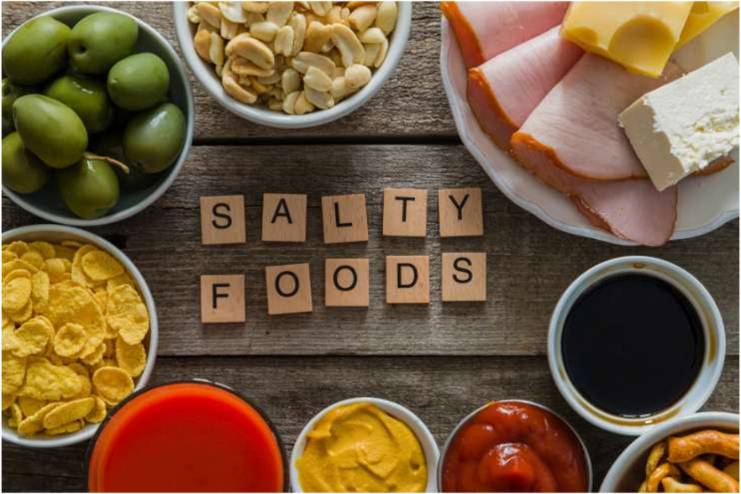
One main risk factors for cardiovascular illnesses is high blood pressure, which is significantly influenced by excessive sodium intake. Processed meals are especially problematic when it comes to managing hypertension. These foods lead to general health problems in addition to compromising cardiovascular health.
Processed foods high in sodium include deli meats, packaged snacks, canned soups, and some condiments. Processed food’s high salt content causes water retention, which raises blood pressure by expanding blood volume.
It becomes essential to read food labels to control salt intake. Customers must be cautious when it comes to nutritional information because a lot of processed foods contain sodium that is concealed from view. It can be easier to spot hidden salt sources in processed foods if you know terminology like sodium bicarbonate, sodium chloride, and monosodium glutamate (MSG).
People can manage their hypertension more effectively when they are informed about processed meals high in sodium. Choosing fresh, whole foods and carefully reading food labels are two ways that people can actively reduce sodium and help maintain normal blood pressure. This knowledge promotes a change in diet towards a heart-healthy one, which enhances longevity and general well-being.
Also, read: 6 Lifestyle Changes to Reduce Your Risk of Hypertension
2. Sugary Beverages and Soft Drinks

In the context of hypertension, the consumption of sugar-filled beverages and soft drinks has come to light as a problematic factor. Research has repeatedly shown that consuming a large amounts of sugar leads to high blood pressure, which emphasizes the need for moderation and awareness when choosing beverages. Those who want to control their hypertension effectively must comprehend how sugar-filled drinks raise blood pressure.
Fruit juices, energy drinks, and carbonated sodas are examples of sugary drinks high in added sugars, especially fructose. Increased blood pressure and insulin resistance have been linked to excessive fructose consumption. The body produces excess insulin in reaction to consuming large amounts of sugar, which causes salt retention and increased sympathetic nervous system activity, raising blood pressure.
Common sugary beverages include carbonated sodas, fruit-flavored drinks, and sweetened iced teas, among other seemingly healthier options.
People are urged to choose healthier options instead of sugar-filled beverages to support the treatment of their hypertension. Water, herbal teas, and fruit- or herb-infused water are significant options supporting general well-being and hydration.
Making the switch to beverages with minimal to no added sugar lowers the chance of developing hypertension and the health issues that go along with it. People can take proactive measures to protect cardiovascular health and manage their hypertension by making educated decisions and embracing healthier options.
Also, read: Diet Plan Control For Hypertension
3. High-sugar and Refined Carbohydrates
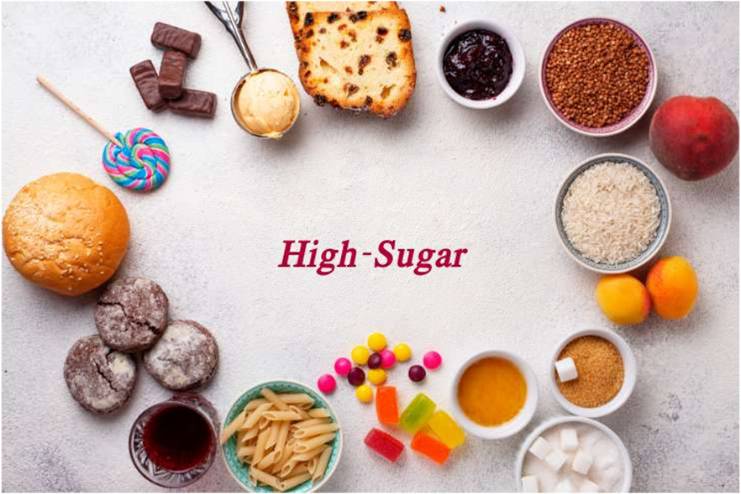
Dietary choices have a significant influence on hypertension that goes beyond sodium and sugar-filled drinks; refined and high-sugar carbs are also important. Eating refined carbohydrate-rich foods can raise blood pressure; therefore, knowing how they affect cardiovascular health is essential.
Refined carbohydrates are quickly absorbed, leading to a sharp rise in blood sugar levels. They are frequently found in processed foods, pastries, white bread, and sweet snacks. This rise sets off an insulin reaction that leads to increased sympathetic nervous system activity, inflammation, and high blood pressure.
Baked pastries, sugary cereals, white rice, and white bread are some foods high in refined carbohydrates. These foods are deficient in vital nutrients and can cause blood sugar levels to spike and fall quickly, making people more prone to energy crashes and increased hunger, both of which can worsen hypertension and have a detrimental effect on general health.
Promoting the consumption of complex carbohydrates to control blood pressure is essential. A continuous supply of energy is offered by whole grains, legumes, fruits, and vegetables, which helps to control the blood sugar levels and keep the heart healthy. Nutrient-dense carbs help people manage their hypertension and improve their general health.
4. Trans Fats and Saturated Fats
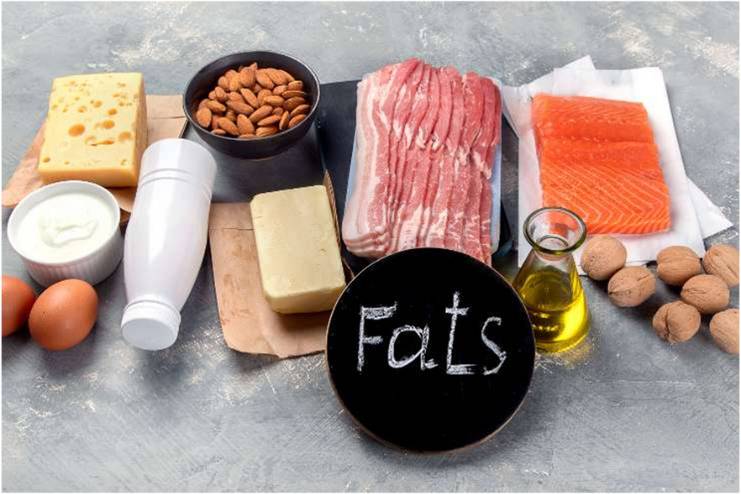
Comprehending the effects of trans fats and saturated fats on cardiovascular health is crucial for those seeking to control hypertension properly. These fats are frequently found in various dietary sources and can substantially worsen cardiovascular problems, so you must watch how much you eat.
Trans fats are well known for hurting heart health. These lipids, included in partly hydrogenated oils, cause an undesirable cholesterol profile by raising LDL (low-density lipoprotein) cholesterol levels and lowering HDL (high-density lipoprotein) cholesterol levels. This imbalance raises the risk of hypertension by decreasing blood flow and causing arterial plaque to develop.
Similarly, saturated fats can raise LDL cholesterol and cause arterial stiffness and hypertension. Saturated fats are found in red meat, full-fat dairy products, and tropical oils. The buildup of plaque in the arteries makes controlling blood pressure even more difficult.
Fried meals, certain margarine, and professionally baked items are familiar dietary sources of trans fats. Fatty meat cuts, processed meats, butter, cheese, and coconut oil are familiar sources of saturated fats.
Choosing healthier fat substitutes is advised to improve blood pressure control. Heart health may benefit from unsaturated fats such as almonds, avocados, olive oil, and fatty seafood. These substitutes offer vital fatty acids without the negative consequences linked to trans and saturated fats, hence enhancing general cardiovascular health. A crucial first step toward successful hypertension treatment and a heart-healthy lifestyle is making educated decisions about dietary lipids.
5. Caffeine-Rich Beverages

In cardiovascular health, there has been interest in how caffeine affects blood pressure. Although many people depend on coffee-containing drinks to give them a daily energy boost, it’s essential to know how caffeine affects blood pressure, especially for those who are treating hypertension.
A natural stimulant, caffeine can momentarily raise blood pressure by encouraging adrenaline production. It enhances adrenaline production, resulting in a brief jump in blood pressure and heart rate. Nonetheless, this impact is usually transient and modest for most people.
Caffeine-containing beverages include energy drinks, tea, coffee, and soft drinks. Each person’s potential reaction to these drinks about hypertension is unique. Some people can be more susceptible to the effects of coffee and have a more noticeable rise in blood pressure.
Moderation is vital for those with hypertension. Recommendations for moderate caffeine usage advise keeping daily intake to 200–300 mg, or roughly one to two cups of coffee. People with hypertension must monitor how they react to coffee and modify their intake accordingly.
Although it could temporarily raise blood pressure, coffee does not significantly contribute to chronic hypertension. However, people should be aware of their general lifestyle choices and consider cutting back on coffee if they experience adverse side effects.
6. Alcohol and its Impact
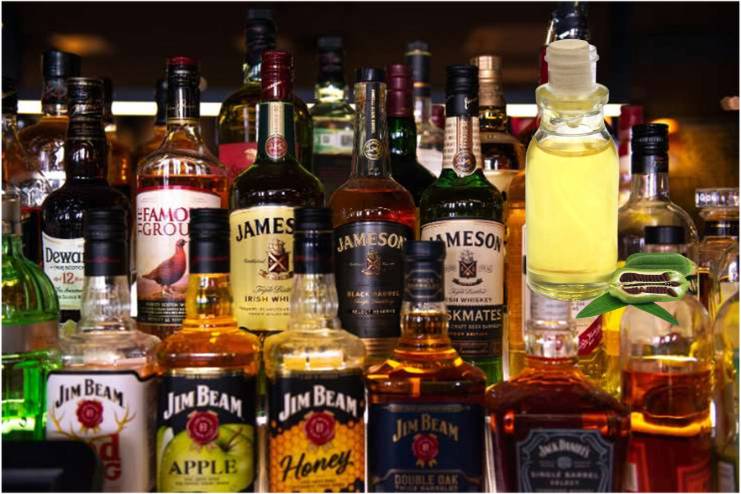
There is a vital part of cardiovascular health that requires attention, and that is the association between drinking alcohol and having high blood pressure. Even though drinking alcohol in moderation may have some positive effects on one’s health, drinking an excessive amount of alcohol might have negative consequences for one’s blood pressure measurement.
Consumption of alcohol in excess has been related to hypertension, which is a factor that contributes to increased blood pressure. Additionally, alcohol has a direct influence on the cardiovascular system, which in turn affects the way the heart and blood vessels operate. Consuming alcohol regularly can result in higher blood pressure over an extended period, which in turn raises the likelihood of developing hypertension over time.
Drinking an excessive amount of alcohol can have a variety of different impacts on one’s blood pressure. Alcohol consumption has the potential to upset the equilibrium of the autonomic nervous system, which can increase sympathetic activity and, as a consequence, an increase in blood pressure. It is also possible that heavy drinking can contribute to weight gain, which further increases the chance of developing hypertension.
Drinking alcohol in moderation is very essential for people who are concerned about their blood pressure because it can contribute to hypertension. According to alcohol consumption guidelines, women should limit themselves to no more than one drink per day, while males should restrict themselves to no more than two drinks per day. It is essential to remember that the standard definition of a “drink” is twelve ounces of beer, five ounces of wine, and one and a half ounces of distilled spirits.
Adopting a thoughtful and sensible approach to alcohol use may be beneficial for the treatment of hypertension. Individuals who already have hypertension or other health concerns, on the other hand, should seek the advice and direction of medical specialists to receive individualized recommendations and recommendations for alcohol use that are customized to their particular requirements.
Also, read: What Are The Effects Of Alcohol On Your Skin? 7 Alarming Side Effects
Conclusion
There is no possible way to overestimate the significant influence that dietary choices have on the management of hypertension. Individuals can take preventative measures to maintain good blood pressure levels if they understand the harmful impact that particular meals have against them. It is essential to avoid processed foods high in salt, beverages high in sugar, and harmful fats, while embracing whole foods rich in nutrients.
References
- https://www.ncbi.nlm.nih.gov/pmc/articles/PMC6770596/
- https://www.statnews.com/2015/12/24/sodium-diet-high-blood-pressure/
- https://www.cdc.gov/salt/index.htm
- https://pubmed.ncbi.nlm.nih.gov/24630785/
- https://www.medicalnewstoday.com/articles/foods-to-avoid-with-high-blood-pressure
- https://www.ncbi.nlm.nih.gov/pmc/articles/PMC7487688/
- https://www.verywellhealth.com/sugar-and-hypertension-5117022
- https://www.ahajournals.org/doi/10.1161/HYPERTENSIONAHA.121.16997
- https://www.diabetes.co.uk/in-depth/high-blood-pressure-excess-sugar-diet-may-culprit/
- https://medlineplus.gov/ency/patientinstructions/000838.htm
- https://www.mayoclinic.org/diseases-conditions/high-blood-cholesterol/in-depth/trans-fat/art-20046114
- https://www.mayoclinic.org/diseases-conditions/high-blood-pressure/expert-answers/blood-pressure/faq-20058543
- https://pubmed.ncbi.nlm.nih.gov/21880846/
- https://www.health.harvard.edu/heart-health/coffee_and_your_blood_pressure
- https://www.ncbi.nlm.nih.gov/pmc/articles/PMC8130994/
- https://www.ncbi.nlm.nih.gov/pmc/articles/PMC4038773/
In this Article


